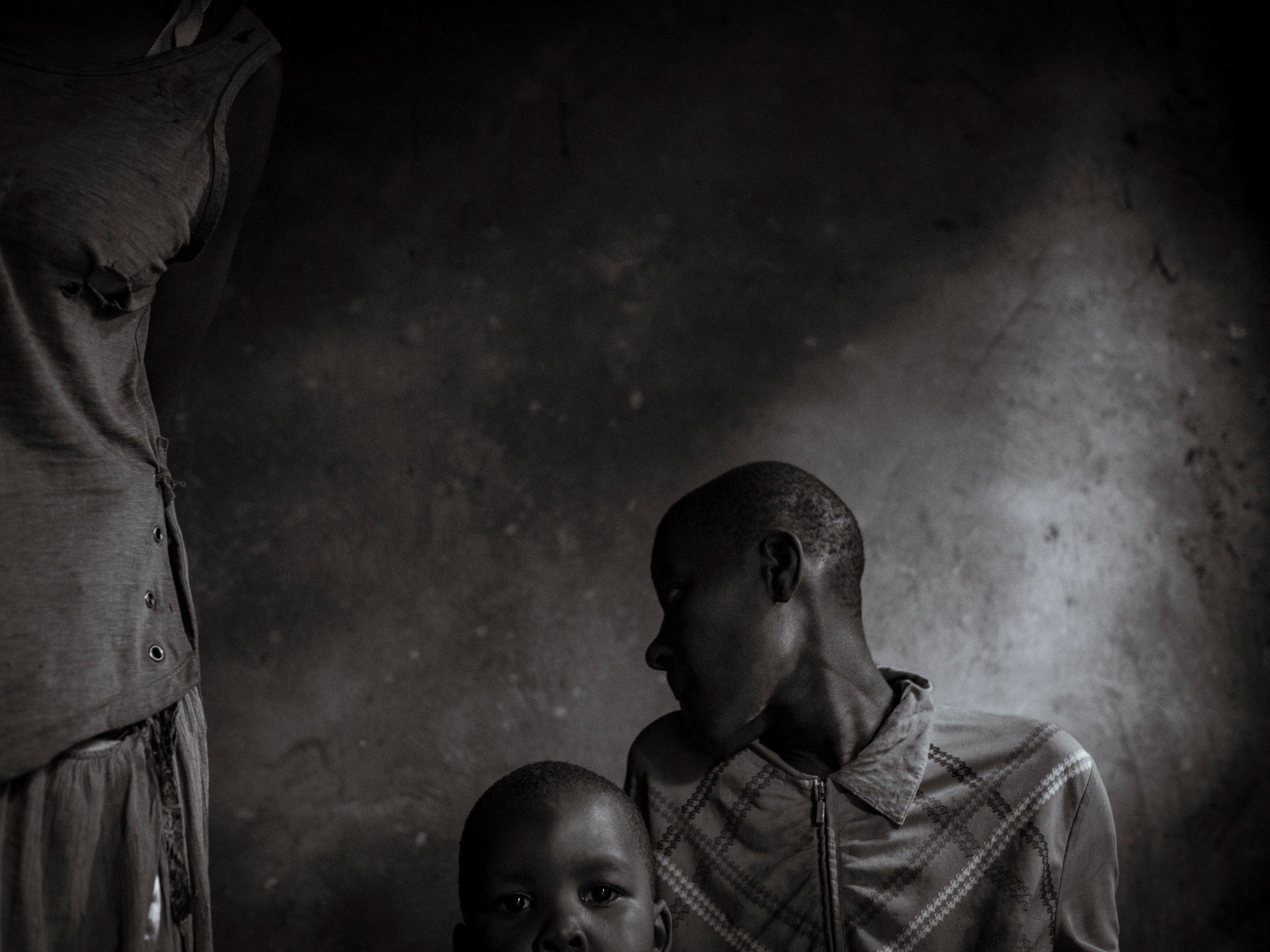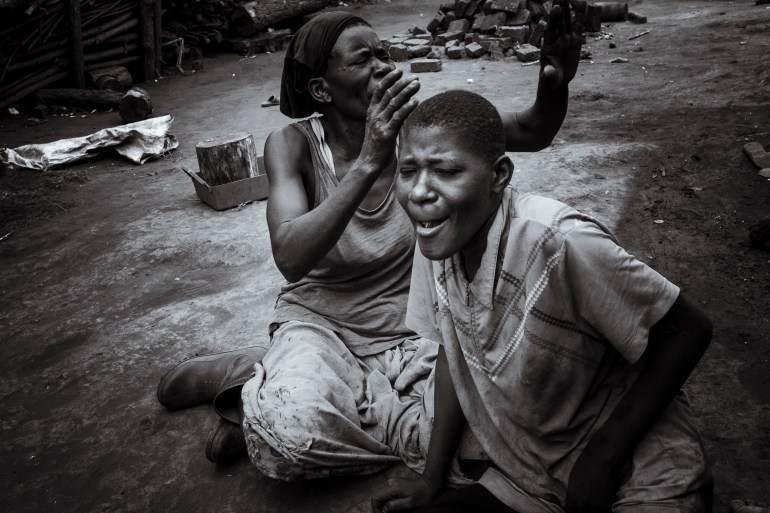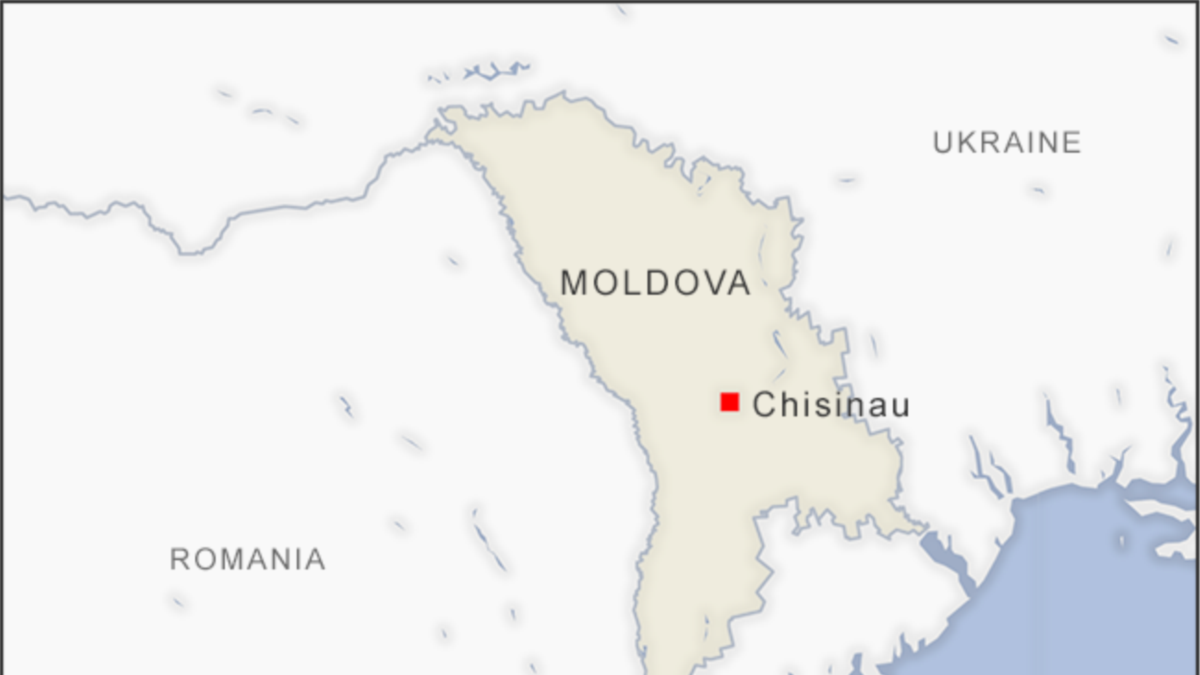
Namazala, Jinja District, Uganda – Joy Nangobi’s house is on the outskirts of Namazala village. Its front is open to the main road and thoroughfare, along which trucks loaded with sugar cane harvested from the surrounding fields drive. The backyard is small and fenced in by tall, dense cane. Two goats sit idle in the yard while three neighborhood children play around them. Laundry hangs neatly drying over a pile of wood under a cloudy mid-morning sky.
From a small outdoor kitchen, Joy slowly pulls her 20-year-old daughter Katherine “Kat” Muwunguzi by her wrist across the hard clay, Kat’s knees grinding the sharp rocky earth, to the storage room where she now sleeps.
The walls are covered in a thin layer of red dust, the floor is littered with wood chips, beneath a rusted steel bed without a mattress. A dirty, tattered blanket is the only barrier between Kat’s lithe body, the cold night air and malaria.
Joy pulls Kat to the edge of the bed, her arms and head flailing. Kat’s legs are twisted unnaturally beneath her as she sits on the edge, her smile childlike as she puts her hand in her mouth. She is instructed not to move and Joy leaves the room, closing the door behind her to continue cooking lunch.
Kat lives with a mental disability and an illness her mother believes is epilepsy.
Her intellectual disability was never officially diagnosed, she cannot speak and is prone to violence.
“When we went to a government facility [hospital], that’s when they told us she had mental problems and should leave.” Joy’s desperation is clear as she explains through an interpreter: “At some point, when they took her to the hospital, she seriously bit my husband. At one point he was even forced to throw it away after a strong bite.”
The stigma surrounding people with intellectual disabilities is fueled by the cultural belief that they are “cursed.”
Kat has a four-year-old son, Edwin, although she does not know that she is the boy’s mother. When Kat started showing at seven months and it was confirmed that she was carrying Edwin, her neighbor disappeared. Joy and her husband Robert Balina, workers on the sugar cane plantations, suspect that their neighbor raped Kat in the sooty outdoor kitchen while they slept inside. He was never charged.
This family dynamic means that Joy is raising Edwin, but not as her own child. She is determined to teach Edwin that Kat is his mother.

“We are doing our best to build a relationship between the child and his mother, but given her mental health situation, there is nothing that means anything to her.
“We always tell this kid [Edwin] No matter what condition your mother is in, she is your mother. Every time we try to ask him just to find out if he remembers who his mother is, and when you ask him he says, ‘The one who is mentally disturbed is my mother’.”
Kat is one of the estimates one in four adults People with a psychosocial or mental disability in Uganda are said to have been victims of sexual assault. But rape is just one of many human rights violations this minority faces because of their vulnerability.
The stigma surrounding people with intellectual disabilities is fueled by the cultural belief that they are “cursed.”
Restrictive practices such as restraint, tethering and forced seclusion are common. In Uganda, people with psychosocial or intellectual disabilities are often viewed as a burden on society.
While NGOs and local experts in the field of intellectual disability cite a lack of education and awareness as major hurdles in overcoming the cultural taboo surrounding such disabilities in communities, they also say the government has failed to prioritize funding .
But a small part of society has taken up the challenge and is giving people like Joy and Kat a glimmer of hope.






Recent Comments